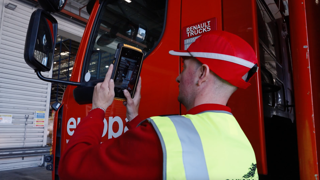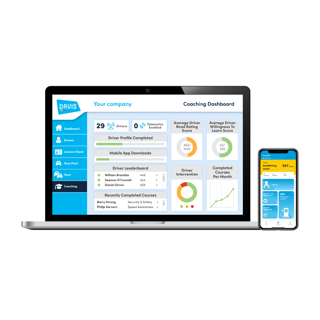By Neil Thomas, director of investigative services at AX Innovation
Fleet management can be complex and challenging for businesses of all sizes, especially when protecting their return on investment (ROI).
One of the most significant threats to fleet ROI is the loss of a vehicle, which can result in high costs beyond the vehicle's value. However, with vehicle tracking technology, businesses can take proactive measures to prevent vehicle loss and protect their bottom line.
The hidden costs of vehicle loss
According to the Home Office, vehicle thefts in England and Wales exceeded 101,000 in 2021, more than twice those published by the DVLA earlier this year.
As a business, vehicle loss can significantly impact your bottom line. Whether you rely on vehicles for deliveries, transportation or other operations, losing a vehicle can disrupt your business and lead to hidden costs that may not be immediately apparent.
Insurance deductibles
Losing a fleet vehicle can be costly and disruptive for businesses of all sizes. Insurance deductibles are one of the highest costs, which can be substantial depending on the policy and the vehicle's value. This cost can be a significant financial burden for businesses, especially those with multiple vehicles in their fleet. Insurers may insist on a tracking device being fitted for high-value vehicles or certain brands to avoid these issues.
Replacement Costs
Another significant cost of losing a fleet vehicle is replacement costs, including purchasing or renting a new vehicle.
According to Intelligent Motoring's analysis of extended warranty claims paid over five years, vehicle repair costs rose by 40% from 2018 to 2022.
There may also be fees for transferring equipment and branding from the lost vehicle to the replacement vehicle. These costs can add up quickly and significantly hit a business's bottom line.
Lost Revenue
Lost revenue is another significant cost associated with losing a fleet vehicle. If the lost vehicle is critical to the business's operations, it may result in a loss of revenue due to missed deliveries or cancelled appointments, causing a ripple effect on the business with delays, dissatisfied customers and lost opportunities.
Reputational Damage
Reputational damage is another potential cost of vehicle loss, particularly if the lost vehicle was involved in an accident or theft. Customers may view the loss as a sign of poor management or neglect, damaging the business's reputation and credibility, particularly for transportation or delivery companies.
Businesses need to take steps to minimise the risk of vehicle loss and plan to address it if it does occur, including implementing vehicle tracking technology, investing in theft prevention measures and having a comprehensive insurance policy.
How vehicle tracking can prevent vehicle loss
Geofencing
Geofencing is another feature of vehicle tracking technology that can help prevent vehicle loss. Geofencing allows businesses to set up virtual boundaries around specific areas and receive alerts if a vehicle enters or exits the designated area. This can be particularly useful for businesses operating in high-risk areas or with valuable equipment onboard their vehicles.
Alerts
Alerts are another key feature of vehicle tracking technology that can help prevent vehicle loss. Businesses can set up alerts for specific events, such as vehicle movement outside business hours or unexpected stops.
These alerts can be sent to fleet managers or security personnel in real-time, allowing them to take immediate action if necessary. Alerts can also notify businesses if a vehicle is involved in a collision or if there is a sudden change in driving behaviour, such as harsh braking or speeding.
Other benefits of vehicle tracking for fleet management
Data-driven insights from vehicle tracking can help improve fleet operations and decision-making, including route optimisation, driver safety, maintenance and scheduling.
Vehicle tracking technology is a powerful tool for businesses looking to protect their fleet ROI and reduce hidden costs associated with vehicle loss. By investing in this technology, businesses can gain greater visibility into their fleet operations, improve their overall efficiency, minimise the risk of vehicle loss, reduce hidden costs and improve their overall fleet management.




















Login to comment
Comments
No comments have been made yet.